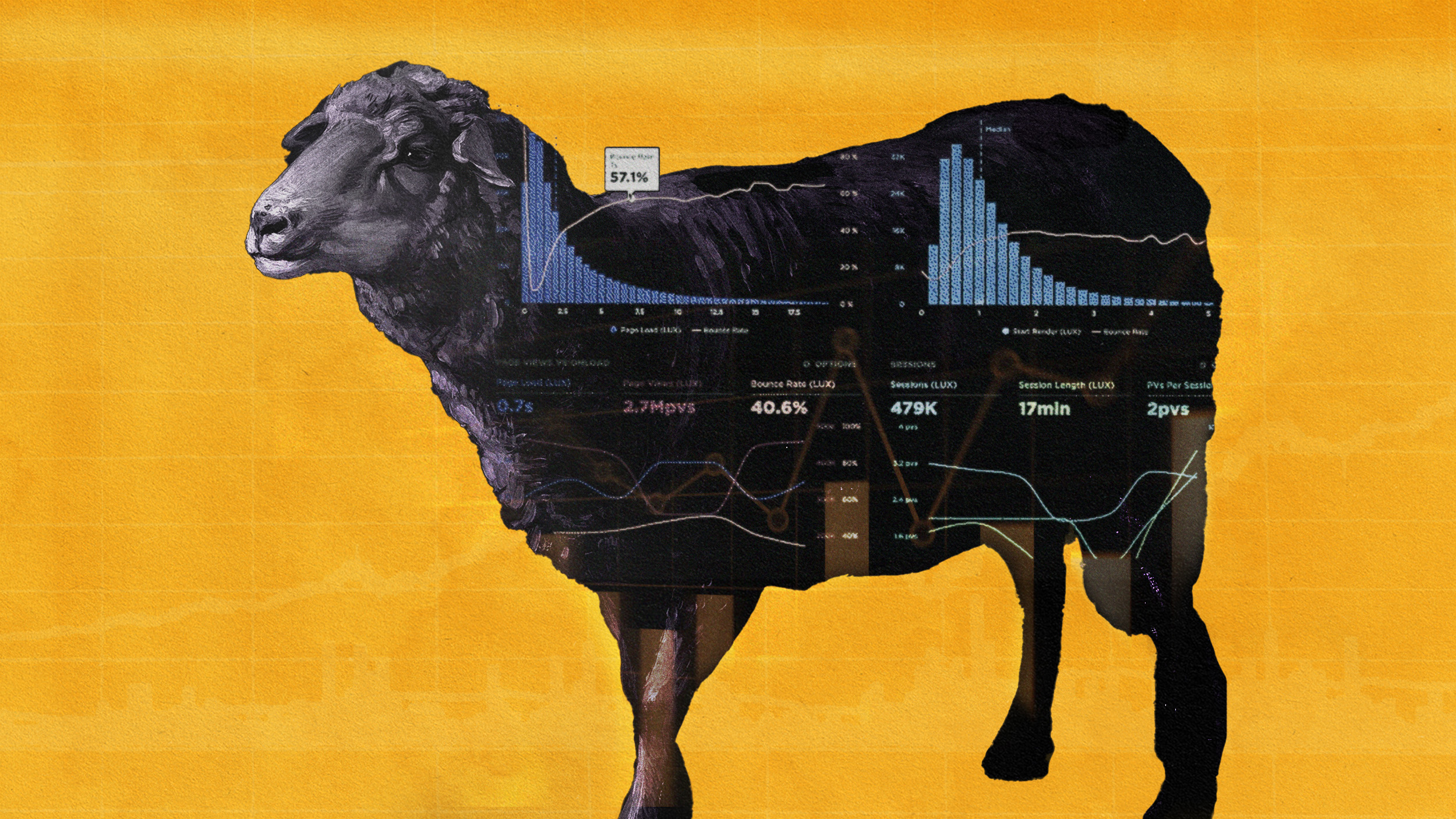One of the greatest historical mysteries lies in why our hunter-gatherer ancestors made the sudden transition to agriculture. Hunter-gatherer economies always focused on the here and now, without spending a great deal of effort doing anything which was more than meeting their specific needs for that day.
On the other hand, in our modern societies, everything has shifted to forward-planning with an emphasis on productivity. This dramatic leap altered our priorities as people and communities, and developed what we now know as the modern approach to work and business.
Experts James Suzman, Tyler Cowen, and Cal Newport unpack common business myths, tracing how we reached our current work cultures from our hunter-gatherer origins.
There's an awful lot of work which I think is work we've simply created because we feel that humans cannot live without organized work- and also 'cause we organize our societies on that basis. But we end up with a lack of opportunity, excess inequality, and many individuals simply not performing up to their maximum potential. It's no longer you just see me in my office looking vaguely busy. You can actually see every email I'm sending and how active I am in a Slack chat. We're now faced with a situation where, as a society, we enjoy this extraordinary abundance but it is very unevenly distributed. It's remarkable how weak is the correlation between success and intelligence. There are other factors such as drive and determination, energy levels, how well you work with other people, leadership skills, charisma- all of those can be more important than intelligence. We have a faulty definition of productivity that we've been following, and what we need to do instead is shift our focus onto outcomes.
My name is James Suzman and I'm an anthropologist and the title of my latest book is called, "Work: A Deep History, from the Stone Age to the Age of Robots"
- Nobody actually knows why our hunter-gatherer ancestors made the sudden transition to agriculture. It's one of the great mysteries of human history. Hunter-gatherer economies always focused on the here and now. People did not spend a great deal effort doing anything which was more than meeting their specific needs for that day. In agricultural societies on the other hand, everything was to do with forward-planning. Everything was to do with being future-focused. Much of our financial vocabulary comes from this basic idea of Protecting your assets is exactly like having a young herdsman standing there protecting it from potential predators. You see these references and we forget them but so many of the concepts around which we organize our economy now actually have their roots firmly planted in the fields of the agricultural revolution, and in many ways, are not particularly suitable to the highly automated modern world in which we live in now. There's an awful lot of work which I think is work we've simply created because we feel that humans cannot live without organized work- and also 'cause we organize our societies on that basis. Going back through all of human history, there are really three great revolutions that have happened in the world of work. Now, one of them happened long before Homo sapiens was on the scene- and that was the invention of fire. Just the sheer ability to be able to make fire meant that humans were able to outsource some of their energy needs to energy stored in wood or coal or something that they could burn, and this was a fundamental transition in the way that they organized their living-working life; partially because it expanded the number of foods that they could eat. So suddenly things like potatoes and tubers and things which are basically inedible raw, they discovered you cook them, you concentrate the energy, and it was fundamental change. It was, I believe, the source of the invention of leisure. But the historical evidence suggests that our hunter-gatherer ancestors became ever more efficient in the food quest. Hunter-gatherers engaged with the land by making a living from harvesting and of course hunting. And that is done with consummate skill and consummate, in some ways, ease. Now, of course, it sounds a little bit idyllic and hunter-gatherers went through intensely difficult times, periods of climatic change and so on, and there are genetic bottlenecks in hunter-gatherer history but for the most part, living off the land seemed a very straightforward way of making a living, and we are again, supremely adapted to making a living as hunters and gatherers. The second great revolution in the history of work was the transition to farming, and the transition to farming of course changed everything. Nobody actually knows what brought about the transition from foraging to agriculture- but whatever happened, agriculture suddenly took hold in the Middle East and then subsequently in South and Central America, in East Asia and in Africa. It happened in many different places and this wasn't based on shared knowledge. We know it was proceeded by a period of great climate change but suddenly, the crops that they expected or the fruits and vegetables and animals and migrations that they expect just didn't happen in the way they were supposed to. And during that process, something happened that persuaded people that there were certain higher-yielding crops or higher-yielding wild plants that they might be able to nurture and forage. The societies that developed agriculture became considerably more productive than the societies that were still living a life of foraging- and agriculture is a completely growth-based phenomenon. It's very important that everybody pulls their weight because the amount of energy you put in was very close to the amount of energy you got out. Everybody had to do their bit. In farming societies, it was almost all about debt 'cause the first debt was between the farmer and the land, and those farmers who go to the effort to have the best fences, to guard their fields, weed the most diligently, to schlep up water from the riverbed if there's not enough rain, those are the farmers that will succeed. So suddenly there's a very clear relationship between effort and reward. Of course, the transition to agriculture involved two things: One thing was domesticating plants, wheat and maize and so on, and the other thing of course was domesticating livestock and in particular, livestock like sheep and goats and perhaps most importantly of all, cattle. Now, when we think about cattle and cattle herds, we have to understand that early agricultural societies, meat was something very expensive and very rare, and in fact, what people used livestock for, in particular cattle, was actually to do work. Cattle basically could do labor for you, and cattle in a sense produced the basis of what our idea is of an So there's no coincidence that the word "cattle" and the word "capital" have the same etymological roots- they mean the same thing. So when we talk about capital and capital growth, actually, the metaphor is very much a herd of cows. This supports larger populations and populations always grew rapidly to the maximum size, the maximum productivity of that land. The instinctive thing you do is when that population goes up and then the harvest perhaps fails then suddenly you think, "Well, we need more land." So agriculture became this great expanding force. Ever since 7,000 years ago is where you get the beginning of the third revolution in the history of work- and that is the creation of cities. In agricultural civilizations, when we tend to think of the ancient past, we do tend to think mostly in terms of cities. We think of Ancient Rome or Athens or Sparta, but the truth is, in all these societies, most people still lived and worked the land. So even the most sophisticated agricultural civilizations, still, 80% of people were actually in the countryside, focused all their labor energy on basically producing the energy they needed to survive and live. Life in the city encouraged two things: First of all, it encouraged the ability to control and manipulate and use surpluses from the countryside as a means to accumulate power and wealth. It created this great melting pot which allowed for this vast efflorescence of new professions because humans, we do not like to sit still. We are naturally creative species. And within the cities, people began to create using that spare energy. You suddenly had the birth of all sorts of artisan skills. You had the birth of more complex cooking techniques. You had the emergence of all sorts of arts and music. Rome was divided into patchwork of what were called You had the potters there, the leather workers there, the butchers there and these communities actually became far more than simply communities of work. People married into them, they lived in amongst them. They became a source of identity. So that micro revolution that happened within these cities to completely different spaces and that's always why there's been this long-term divide between rural world and city world but in many senses, those cities were like sort of time-traveling microcosms of the future that we're in now. The future we're in now is one where very few of us work the land at all and we're actually all in the business of expending energy, acquired one, by farmers in the land outside but also two, energy that we plucked out of the ground in the form of fossil fuels and so on. We're now faced with a situation where, as a society, we enjoy this extraordinary abundance but it is very unevenly distributed. One of the fundamental problems of a more automated, more productive economy is the work that any individual can do is less and less capable of generating huge amounts of wealth. Now, the best way to generate wealth is to inherit a bit of wealth and put that wealth to work. In other words, very difficult for people to be able to get any kind of the idea of the American Dream of being able to work your way up from poverty to tremendous wealth. It's no longer possible to do it. So what it is incumbent upon us to do is to experiment. We don't know what it is like to deal with all these different things we have. But we should approach the problem as if we approach any other problem, an engineering problem, building a bridge over a river and we now have the challenge of reorganizing our economies in such a way that responds to the fact that actually the way we organize our economy now is posing far greater risks than it potentially brings us benefits.
Hello, I'm Tyler Cowen. I'm a professor of economics at George Mason University. My latest book, co-authored with Daniel Gross, is called "Talent: How to Identify Energizers, Creators, and Winners Around the World."
- My entire life, I've been involved with starting or managing projects. And in virtually every case, I found the true binding constraint was not enough talent. There was a recent study that estimated the total value of talent, or human capital, in the world, is over $550 trillion. So it seemed to me that as a social problem, we're not taking talent seriously enough. We end up with a lack of opportunity, excess inequality, and many individuals simply not performing up to their maximum potential. John Hammond was one of the great musical talents of the 20th century. But his contribution was not singing or playing an instrument. What he did was to find other musical talents. So he found and identified Count Basie, Aretha Franklin, Benny Goodman, Bruce Springsteen, Bob Dylan, Stevie Ray Vaughan. He was one of the most phenomenal talent scouts of the 20th century. He had at least two key features in his search for musical talent. First, his primary motive was love for music. He wasn't necessarily out to make as much money from these people as possible. Second, he did not have preconceptions about race or gender. And he, you could say almost ruthlessly, was devoted to hearing quality and then seeing through the process of advancing those people in their careers. What I'm saying in my book with Daniel Gross is that we need more John Hammonds, but in every single walk of life. There are so many problems on how talent evaluation is done today. In larger corporations, the problem tends to be too much bureaucratization. Too many boring interview processes that just make everyone a little bit numb. The interviewer goes through some rehearsed questions. The interviewee goes through some rehearsed answers. Everyone knows it's a bit phony. Neither side really learns that much. But I think that's also just the beginning of the mistakes we're making. One problem is that people, when hiring, they're too prone to hire other people like themselves. Those are virtues they find relatively easy to detect. Think about the role of intelligence in the hiring process. For people who are highly intelligent, highly skilled, the evidence is that they are overrating intelligence. For any kind of job, there might be some basic, minimum level of intelligence that would be required. But when you look above that level, it's remarkable how weak is the correlation between success and intelligence. There are other factors such as drive and determination, energy levels, how well you work with other people, leadership skills, charisma- all of those can be more important than intelligence. So I wouldn't say that everyone overrates intelligence, but it's the smart people who do, and that's exactly the problem. If you're hiring people, you're also looking for people who are undervalued by the rest of the market. The way you really do well is by finding undervalued talents where the rest of the market is not seeing something. It could be the market doesn't understand fully how talent works. It could be a case of prejudice. There can be issues across race. There can be qualities that might appear negative, like neuroticism, but actually for a lot of jobs, neuroticism is a good thing. For your own success, focus not only on talent at the absolute level, but focus on which talents are the truly undervalued ones. I think another area where you find major biases is gender in the workplace. For instance, there is good evidence that very smart men tend to underrate how smart the very smartest women are. In most cases, I don't think it's explicit prejudice or chauvinism, though there is some of that. Men, when they interview women, at least on average, they tend to put too much weight on how they perceive the woman's personality. Whether they individually find it pleasant or agreeable. That might matter for the job, but you know, very, very often it doesn't. I think by being more open and just trying to look past some of your immediate emotional reactions, you can make better decisions. Disability is a very important topic in the workplace today. But let me first say, I don't even like the word "disability." What is called a disability is not in every case a disability, or it can be understood in some better and more complex way. There are large numbers of individuals who are, for whatever reasons, quite different. One of the most common reasons might be ADHD. Another possibility would be some form of autism. These individuals do not always interview well, and very commonly they didn't do well in school 'cause our school systems, they are not well-designed to deal with neurodiversity. But don't be so quick to dismiss them on the grounds of a bad interview or bad grades. Some of our greatest talents are highly unusual. There's plenty of talent there that is currently greatly undervalued. Of all the different parts of the American, and indeed global economy, I think the sector that does the best at finding talent is venture capital. Because the way venture capital is structured a lot of your investments, they're gonna lose money- you know it. But there'll be a small number that return to you 100x or 200x your initial investment. So your emphasis is on the deals you might be missing and how you can find them. And that makes people more open-minded, more tolerant of their own errors, less risk-averse, and more willing to think outside the box. They have the mentality: "Fear of missing out," and that's the direction we all need to move in.
-I'm Cal Newport. I'm a computer scientist and writer. My most recent book is "Slow Productivity: The Lost Art of Accomplishment Without Burnout."
We're increasingly facing burnout. How is it possible to do work that you're proud of and not feel like your job is encroaching on all parts of your life? Because it's no longer you just see me in my office looking vaguely busy. You can actually see every email I'm sending and how active I am in a Slack chat. I could do this on the way to work, on the way home from work, at home, on the weekends. Enough is enough. We're increasingly exhausted. We have a faulty definition of productivity that we've been following, and what we need to do instead is shift our focus onto outcomes.
So the knowledge sector emerges in the mid-twentieth century. When it emerges, our best understanding of productivity came from manufacturing. Manufacturing, this is something that we could measure very precisely. For example, how many Model Ts are we producing per labor hour going in as input? And we had a number we could look at. Knowledge work emerges. These type of metrics don't work anymore. Because in knowledge work, we're not producing one thing. I might be working on seven or eight different things at the same time. This could be different than the seven or eight things that the person right next to me is working on. Our solution to this was to introduce a rough heuristic that I call pseudo-productivity that said we can use visible activity as a crude proxy for useful effort. So if I see you doing things, that's better than you not doing things. Come to an office and we watch you work. If we need to be more productive, come earlier, stay later. We'll just use activity as our best marker that you're probably doing something useful. More and more of our time is focused on performing this busyness, which means less of our time is spent actually doing things that matter.
So what's the solution? Slow productivity is a way of measuring useful effort that is now much more focused on the quality things you produce over time as opposed to your visible activity in the moment, and I define it to be built on three main principles. The first is to do fewer things. Now this idea scares a lot of people when they first hear it because they interpret do fewer things to mean accomplish fewer things. What I really mean is do fewer things at once. We know this from neuroscience and organizational psychology that when you turn the target of your attention from one point to another, it takes a while for your brain to reorient. The things you're thinking about over here leaves what's known as attention residue. This is a self-imposed reduction of cognitive capacity, so you're producing worse work. Even worse, it's a psychological state that is exhausting and frustrating, so the experience of work itself just becomes subjectively very negative. So what happens if I'm working on fewer things at once? More of my day can actually be spent trying to complete commitments, which means I'm going to complete them faster. And probably the quality level is going to be higher as well because I can give them uninterrupted concentration.
The second principle is to work at a natural pace. One of the defining features of human economic activity for the last several hundred thousand years is that the seasons really matter. There was migration seasons when we were hunting. There was planting seasons. We were planting, and harvest seasons when we're harvesting, and seasons where neither of those activities were going on. We had a lot of variety throughout the year in terms of how hard we were working. I think in knowledge work, if certain times of year are more intense than others, this will lead to overall better and more sustainable outcomes. So the principle of working at a natural pace says it's okay to not redline it fifty weeks a year, five days a week. We can have busy days and less busy days. We can have busy seasons and less busy seasons.
The third principle of slow productivity is to obsess over quality. And what this means is you should identify the things you do in your work that produce the most value and really care about getting better at that. Any quest towards obsessing over quality has to start with a perhaps pretty thorough investigation of your own job. And then once you figure that out, start giving that activity as much attention as you can. For example, invest in better tools so that you can signal to yourself that you're invested in doing this thing well. I did this myself as a postdoc. I was at MIT, didn't have a ton of money at that time, but I bought a fifty-dollar lab notebook. And my idea was this is going to make me take the work I'm doing in this notebook more seriously, and it did. So something about having this more quality tool pushed me towards more quality thinking.
So this idea that you want to slow down, that you want to do fewer things, that you want to have a more natural pace, this becomes very natural when you're really focused on doing what you do well. You begin to see all of those meetings and the email and the overstuffed task list not as a mark of productivity, but obstacles to what you're really trying to do. If you are embracing these principles, a few things are going to happen. The pace at which important things are finished is going to go up. The quality of what you're producing is going to go up, and the happiness is also going to go up. This is going to become a much more sustainable work environment, and you're going to be doing the work that's going to make you better.
- Want to dive deeper, become a Big Think member and join our Members-Only Community, watch videos early, and unlock full interviews.









